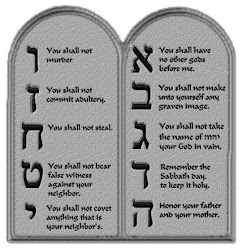GREAT BRITAIN
Although this country is often called England, or alluded to as the United Kingdom, the British Empire, or Albion, no error will be made in referring to it as Great Britain, or in writing this name on a letter addressed to any town or city of the British Archipelago.
Before the union of the various Kingdoms, the term Great Britain was applied only to the island composed of England, Scotland, and Wales. After the union, that term included Ireland, the Isle of Man, and the Channel Islands. However, with the change that has taken place in the status of Ireland, which is now a dominion of the British Empire, the inclusion of Ireland is no longer accurate.
The total area of the country named is almost 122.000 square miles, and the population is close to 47.000.000. the eastern part of the island of England is level or slightly rolling, with hills in the northern and western part. Scotland is largely mountainous and, Wales is rather hilly. Ireland is low in the south, rolling in the center, and hilly in the north. The climate is moist, with frequent fogs, but equable.
The most important natural resources are coal and iron, but the fisheries are also extremely valuable. Agriculture is very highly developed, and large crops of wheat, barley, oats, rye, hops, peas, beans, and turnips are raised. But the yield is not sufficient to feed the population, and so there must be extensive imports of foodstuffs. In Ireland, potatoes and flax are important crops.
The merchant marine of Great Britain exceeds in size that of any other nation and carries a large part of the trade of the world, both passengers and freight.
Transportation facilities are extraordinarily good, there being 23.000 miles of railway and numerous canals. The railways center in London, the capital, and radiate to all parts of the island. The island waterways, although important, carry less than one-tenth as much freight as the railroads.
Although this country is often called England, or alluded to as the United Kingdom, the British Empire, or Albion, no error will be made in referring to it as Great Britain, or in writing this name on a letter addressed to any town or city of the British Archipelago.
Before the union of the various Kingdoms, the term Great Britain was applied only to the island composed of England, Scotland, and Wales. After the union, that term included Ireland, the Isle of Man, and the Channel Islands. However, with the change that has taken place in the status of Ireland, which is now a dominion of the British Empire, the inclusion of Ireland is no longer accurate.
The total area of the country named is almost 122.000 square miles, and the population is close to 47.000.000. the eastern part of the island of England is level or slightly rolling, with hills in the northern and western part. Scotland is largely mountainous and, Wales is rather hilly. Ireland is low in the south, rolling in the center, and hilly in the north. The climate is moist, with frequent fogs, but equable.
The most important natural resources are coal and iron, but the fisheries are also extremely valuable. Agriculture is very highly developed, and large crops of wheat, barley, oats, rye, hops, peas, beans, and turnips are raised. But the yield is not sufficient to feed the population, and so there must be extensive imports of foodstuffs. In Ireland, potatoes and flax are important crops.
The merchant marine of Great Britain exceeds in size that of any other nation and carries a large part of the trade of the world, both passengers and freight.
Transportation facilities are extraordinarily good, there being 23.000 miles of railway and numerous canals. The railways center in London, the capital, and radiate to all parts of the island. The island waterways, although important, carry less than one-tenth as much freight as the railroads.


No comments:
Post a Comment